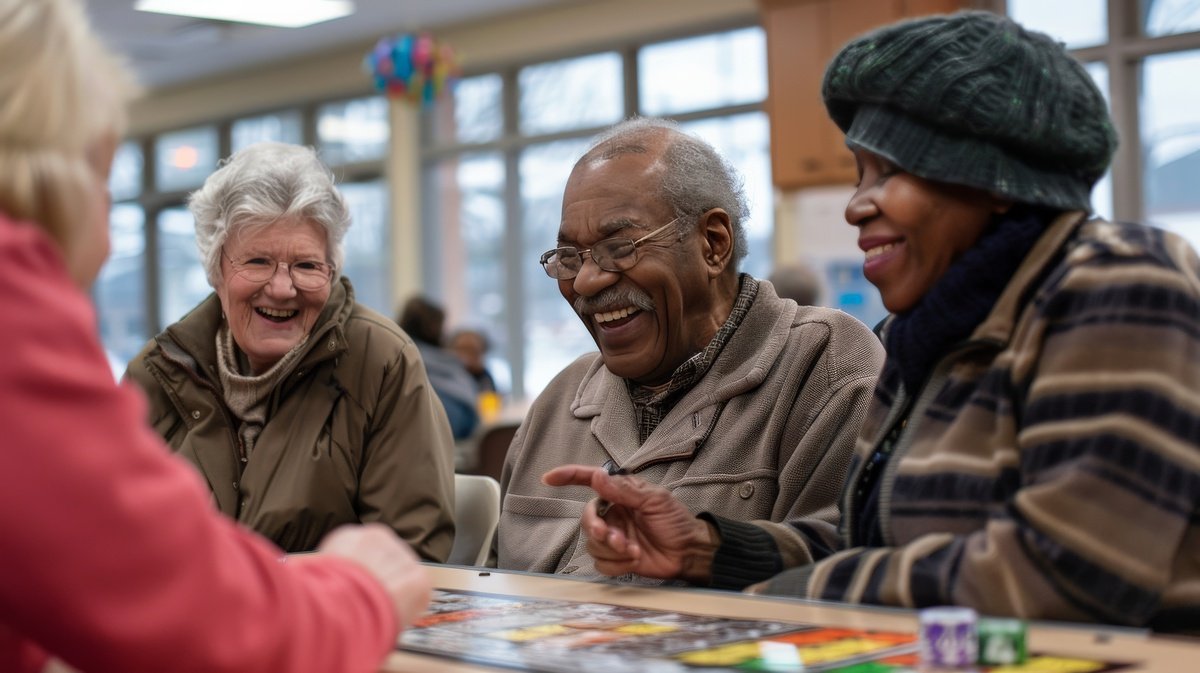When you picture a family caregiver of an older adult, who comes to mind? Historically, women have been the lead caregivers of families, whether caring for young children or aging parents. This is changing.
In recent decades, gender norms in American society have begun to shift away from stereotypical roles where women are characterized as innately nurturing and passive, while men are seen as independent, decisive, and natural problem-solvers. Younger generations are challenging the traditional ideals of how our culture defines our roles and expectations based on our gender or sex.
What we don’t often consider is how traditional gender roles play out in our golden years – and what that means for male caregivers and those they care for.
According to the AARP, male caregivers make up 40% of all caregivers.
Research shows that there are key differences among men and women when it comes to their caregiving approach. Below is a short-list of male caregiver tendencies based on multiple research articles published in the highly-reviewed American Journal of Men’s Health.
Men are less likely to provide hands-on personal care
When it comes to caregiving, providing personal care like bathing, incontinence care, and grooming may be a particular challenge for men*. This is especially true for those without past childcare experience.
Men may gravitate toward less hands-on duties such as providing transportation, managing bills, and completing home maintenance. Men are more likely than women to seek out professional care providers for assistance with intimate, personal care duties. In turn, this extra support serves as a protective factor against caregiver burnout for men.
*Spousal caregivers are the exception – husbands caring for their wives tend to provide the same amount of hands-on care as caregiving wives.
Men tend to be more task-focused caregivers.
They are more likely to view tasks such as meal preparation, transportation, and managing doctor’s appointments as problems to be solved, requiring a plan and strategy.
The focus is on problem-solving and planning in an effort to actively improve a situation. This logistical and practical perspective is intrinsically involves less emotional processing or output.
This differs from the emotion-focused approach more often used by women, through which they attempt to lessen their stress by embodying a positive outlook, embracing spirituality, or viewing caregiving as a catalyst for personal growth.
While both approaches (task-focused and emotion-focused) reduce stress, research shows that over time emotion-focused caregiving has longer lasting effects on stress-reduction.
Men are less likely to express or report the emotional toll of caregiving
Research shows that support groups are highly beneficial in promoting a sense of belonging and camaraderie, especially for male caregivers. Support groups billed as educational are better received by male caregivers who appreciate learning actionable steps and resources to help ease the caregiving burden.
Peer support groups with other male participants are also beneficial. Caregiving can be a lonely journey….men and women alike need to vent their frustrations and feel supported in order to know they are not alone.
Male caregivers will play a crucial role in the future of caregiving
According to the Alzheimer’s Association, nearly ⅔ of all individuals diagnosed with Alzheimer’s disease are women. As Baby Boomers age, Alzheimer’s and other dementia diagnoses are expected to climb as well.
This means the number of male caregivers will continue to rise in the coming decades, and as a result women will no longer comprise the majority of caregivers.
Therefore, male caregivers may have a unique perspective dependent upon how gender roles and caregiving tasks were socialized throughout their life experiences.
ElderTree Care Management is here to help and empower all caregivers to utilize their individual strengths and overcome caregiving challenges. Whether you’re searching for reputable home health agencies, support groups, or simply need information, ElderTree can provide a plethora of resources across the DC-metro area.
–Shasta Douglas, MSW, Senior Care Manager
Disclaimer: This blog is based on a generalization of research findings. The aforementioned information will not be applicable to all. Each caregiver, despite sex or gender, is unique and their caregiving approach is largely based on the needs of the person they are caring for. The intention of this blog is not to bolster stereotypes, rather to examine a few of the distinctive strengths and challenges that may be present for those who identify as male caregivers.



